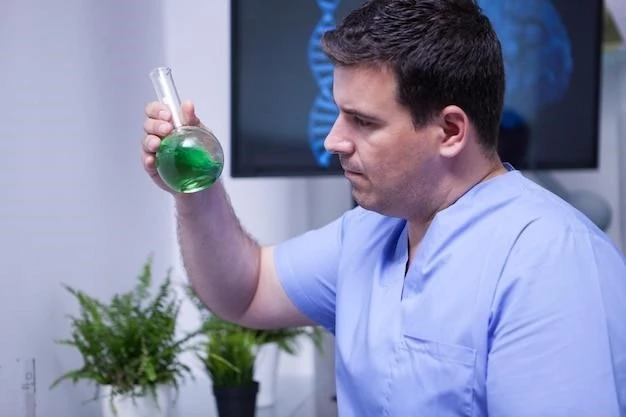Symptoms of 6-pyruvoyltetrahydropterin synthase deficiency
Signs can include mobility issues‚ muscle weakness‚ intellectual disabilities‚ and seizures;
Common Symptoms
Signs can include mobility issues‚ muscle weakness‚ intellectual disabilities‚ and seizures. These symptoms may vary in severity among individuals with 6-pyruvoyltetrahydropterin synthase deficiency. Early signs often appear in infancy or early childhood‚ affecting neurological and motor functions.
Diagnosis and testing for 6-pyruvoyltetrahydropterin synthase deficiency
Confirmation through genetic testing and analysis of neurotransmitter metabolites in cerebrospinal fluid
Diagnostic Tests
Diagnosis of 6-pyruvoyltetrahydropterin synthase deficiency involves genetic testing to identify mutations in the PTS gene. Additionally‚ analyzing neurotransmitter metabolites in the cerebrospinal fluid can help confirm the condition. These tests are essential for accurate diagnosis and appropriate treatment planning.

Treatment options for 6-pyruvoyltetrahydropterin synthase deficiency
Therapies focus on managing symptoms like movement disorders and cognitive impairments effectively.
Treatment Approaches
Management includes medications to regulate neurotransmitters‚ physical and occupational therapy to address motor issues‚ and educational support for learning disabilities. Close monitoring and multidisciplinary care are crucial for optimal outcomes in individuals with 6-pyruvoyltetrahydropterin synthase deficiency.
Genetic inheritance patterns of 6-pyruvoyltetrahydropterin synthase deficiency
The condition follows an autosomal recessive pattern‚ requiring mutations in both copies of the PTS gene.
Inheritance Patterns
6-pyruvoyltetrahydropterin synthase deficiency is inherited in an autosomal recessive manner‚ meaning individuals must inherit mutations in both copies of the PTS gene ౼ one from each parent ─ to develop the condition. Carriers of a single mutated gene typically do not show symptoms.
Research advancements in 6-pyruvoyltetrahydropterin synthase deficiency
Ongoing studies focus on developing new therapeutic approaches for better management of the condition.
Current Research
Recent investigations in 6-pyruvoyltetrahydropterin synthase deficiency are exploring gene therapy‚ enzyme replacement strategies‚ and potential neuroprotective interventions. These advancements aim to enhance quality of life and long-term outcomes for affected individuals by addressing the underlying biochemical deficits associated with the condition.
Complications associated with 6-pyruvoyltetrahydropterin synthase deficiency
Complications may include movement disorders‚ intellectual disabilities‚ and seizures due to neurotransmitter imbalances.
Potential Complications
Individuals with 6-pyruvoyltetrahydropterin synthase deficiency may experience complications such as motor impairments‚ cognitive limitations‚ psychiatric issues‚ and development delays. These challenges can significantly impact daily functioning and require comprehensive care and support from healthcare providers and caregivers to address the complex needs of affected individuals.
Lifestyle management tips for 6-pyruvoyltetrahydropterin synthase deficiency
Focus on a balanced diet‚ regular physical activity‚ cognitive stimulation‚ and consistent medical follow-ups.
Recommended Lifestyle Changes
For individuals with 6-pyruvoyltetrahydropterin synthase deficiency‚ focusing on a well-rounded diet rich in essential nutrients‚ engaging in appropriate physical activities to support motor skills‚ participating in cognitive exercises to stimulate brain function‚ and maintaining regular check-ups with healthcare professionals are essential lifestyle changes to promote overall well-being and manage the condition effectively.
Support resources for individuals with 6-pyruvoyltetrahydropterin synthase deficiency
Connect with patient advocacy groups‚ genetic counselors‚ specialized healthcare providers‚ and online forums for guidance and support.
Available Support Resources
Individuals with 6-pyruvoyltetrahydropterin synthase deficiency can access support from organizations like the National PKU Alliance‚ National Organization for Rare Disorders‚ and Genetic and Rare Diseases Information Center. These resources offer information‚ advocacy‚ and connections to specialists‚ helping individuals and families navigate the challenges associated with this rare genetic disorder.
